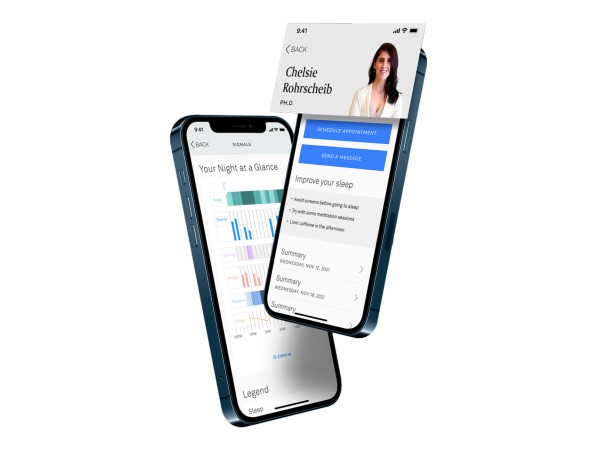

Let’s just say being forced to sleep in a strange place with wires hooked up to me wasn’t exactly the most conducive way for me to get good sleep; I slept maybe three hours, at best. I wish I had had the ability to do the test from home, where I was most comfortable.
That is what Wesper, an FDA-cleared home sleep lab, allows for: the company uses wireless biometric sensors and algorithms that allow for an at-home medical diagnosis with professional services and ongoing measurement before, during, and after treatment.
On Monday, the company announced a $9.6 million Series A round that included participation from Valor Equity Partners, Breyer Capital, Spark Capital, as well as angel investors from what it calls “leading health-tech firms.”
Founded in 2017, the New York City-based Wesper allows people to test themselves in their home environment, measuring longitudinally sleep position, snoring, oxygen desaturation, apnea events, breathing quality, and pulse rate.
All the patient has to do is stick patches to their stomach and then pair the patches to the Wesper app via bluetooth; when they wake up they will have a full report about their sleep, which they can then share with Wesper sleep specialists and physicians. The patient will then be connected with a sleep expert who will evaluate their condition and formulate a personalized treatment plan, including lifestyle and medical interventions to improve their sleep.
Wesper is not a medical device, and isn’t able to detect apneas or hypopneas, but it can detect inconsistent breathing by using clinically-validated respiratory measurements to identify periods of inconsistent breathing throughout the night. That allows it to generate insights about the quality of a person’s breathing, amount of time snoring, sleeping positions, heart rate, sleep time, sleep efficiency, and sleep staging. The company also provides other environmental measurements, such as patch temperature and ambient noise.
In regards to its accuracy, the company says it has a 95.6% correlation to a sleep lab.
(Image source: wesper.co)















